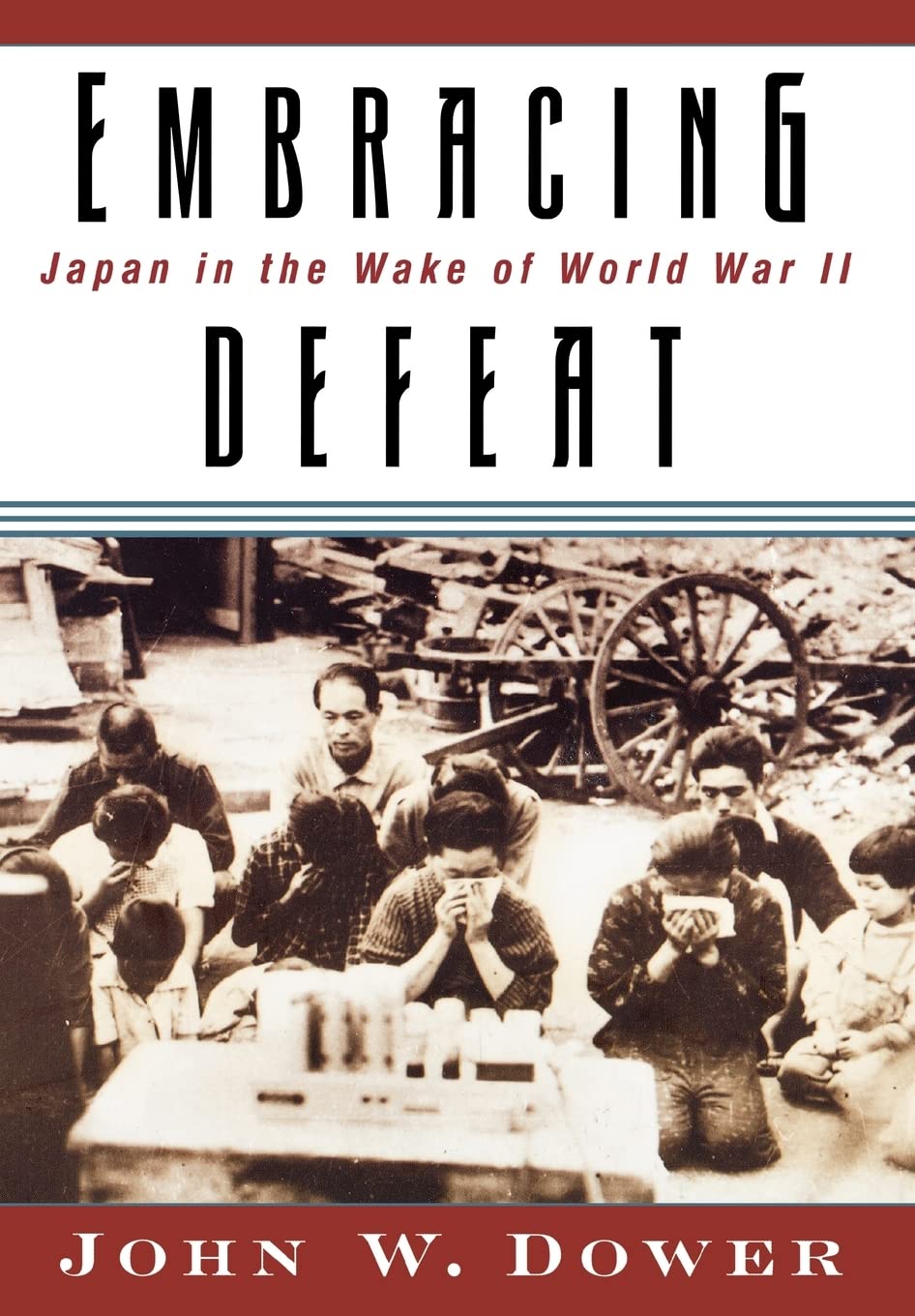Hardcover, 676 pages
English language
Published 1999 by The New Press.

Hardcover, 676 pages
English language
Published 1999 by The New Press.
John Dower's War Without Mercy, winner of the National Book Critics Circle Award, was hailed by The New Republic as "the most important study of the Pacific War ever published." Now this distinguished historian of modern Japan casts his eye on the immediate aftermath of World War II. Drawing on a vast range of Japanese sources, this new study illuminates how shattering defeat followed by over six years of American military occupation affected every level of Japanese society in ways that neither the victor nor the vanquished could anticipate.
The great achievement of Embracing Defeatlies in its vivid portrayal of the countless ways in which Japanese met the challenge of "starting over"--from top-level manipulations concerning the fate of Emperor Hirohito to the hopes, fears, and activities of ordinary men and women in every walk of life. This is a fascinating portrait of an extraordinary moment in history, when new values …
John Dower's War Without Mercy, winner of the National Book Critics Circle Award, was hailed by The New Republic as "the most important study of the Pacific War ever published." Now this distinguished historian of modern Japan casts his eye on the immediate aftermath of World War II. Drawing on a vast range of Japanese sources, this new study illuminates how shattering defeat followed by over six years of American military occupation affected every level of Japanese society in ways that neither the victor nor the vanquished could anticipate.
The great achievement of Embracing Defeatlies in its vivid portrayal of the countless ways in which Japanese met the challenge of "starting over"--from top-level manipulations concerning the fate of Emperor Hirohito to the hopes, fears, and activities of ordinary men and women in every walk of life. This is a fascinating portrait of an extraordinary moment in history, when new values warred with old and early ideals of demilitarization and radical reform were soon challenged by the United States's decision to incorporate Japan into the Cold War Pax Americana.
Dower shows us the intense and turbulent interplay of conqueror and conquered, West and East, in a way no Western historian has done before. The great issues that confront Japan today--including attitudes toward war guilt and responsibility, democracy, remilitarization, and the breakdown of the postwar "capitalist development state"--were forged in the crucible of defeat, and all receive consummate treatment here.